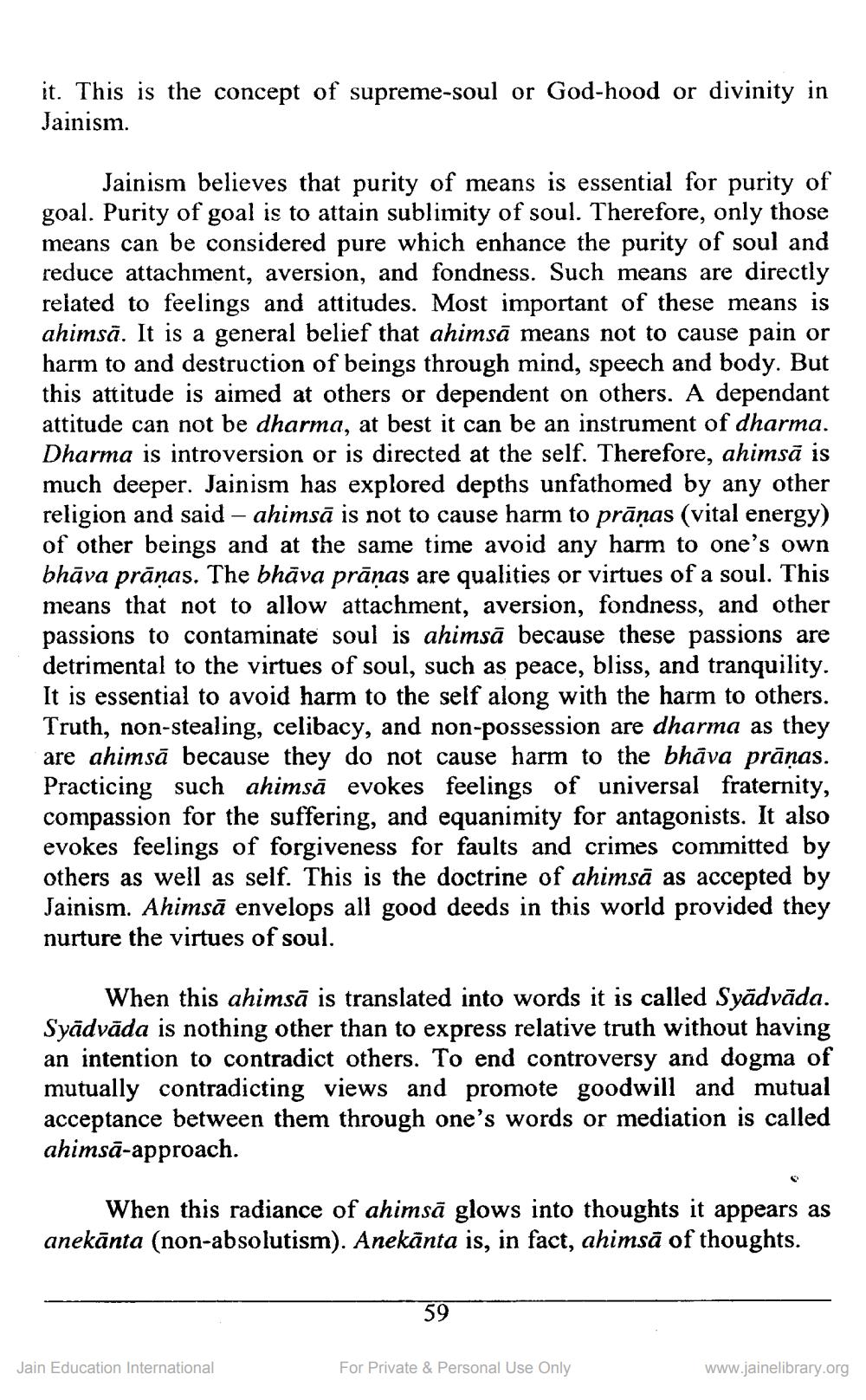________________
it. This is the concept of supreme-soul or God-hood or divinity in Jainism.
Jainism believes that purity of means is essential for purity of goal. Purity of goal is to attain sublimity of soul. Therefore, only those means can be considered pure which enhance the purity of soul and reduce attachment, aversion, and fondness. Such means are directly related to feelings and attitudes. Most important of these means is ahimsā. It is a general belief that ahimsā means not to cause pain or harm to and destruction of beings through mind, speech and body. But this attitude is aimed at others or dependent on others. A dependant attitude can not be dharma, at best it can be an instrument of dharma. Dharma is introversion or is directed at the self. Therefore, ahimsā is much deeper. Jainism has explored depths unfathomed by any other religion and said – ahimsā is not to cause harm to prāņas (vital energy) of other beings and at the same time avoid any harm to one's own bhāva prāṇas. The bhāva prānas are qualities or virtues of a soul. This means that not to allow attachment, aversion, fondness, and other passions to contaminate soul is ahimsā because these passions are detrimental to the virtues of soul, such as peace, bliss, and tranquility. It is essential to avoid harm to the self along with the harm to others. Truth, non-stealing, celibacy, and non-possession are dharma as they are ahimsā because they do not cause harm to the bhāva prāņas. Practicing such ahimsā evokes feelings of universal fraternity, compassion for the suffering, and equanimity for antagonists. It also evokes feelings of forgiveness for faults and crimes committed by others as well as self. This is the doctrine of ahimsā as accepted by Jainism. Ahimsā envelops all good deeds in this world provided they nurture the virtues of soul.
When this ahimsā is translated into words it is called Syādvāda. Syādvāda is nothing other than to express relative truth without having an intention to contradict others. To end controversy and dogma of mutually contradicting views and promote goodwill and mutual acceptance between them through one's words or mediation is called ahimsā-approach.
When this radiance of ahimsā glows into thoughts it appears as anekānta (non-absolutism). Anekānta is, in fact, ahimsā of thoughts.
39
Jain Education International
For Private & Personal Use Only
www.jainelibrary.org




